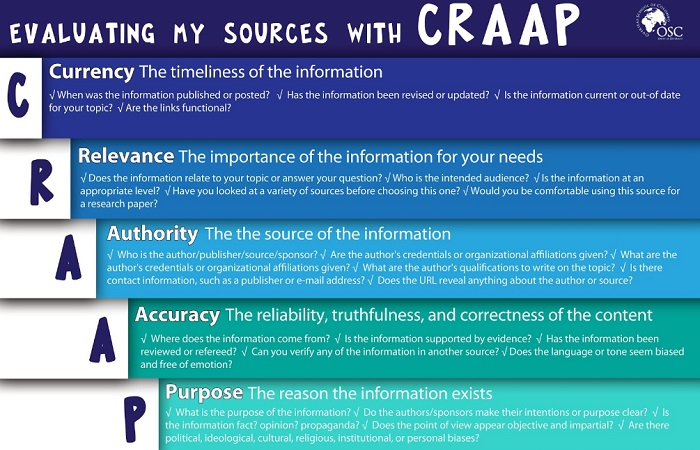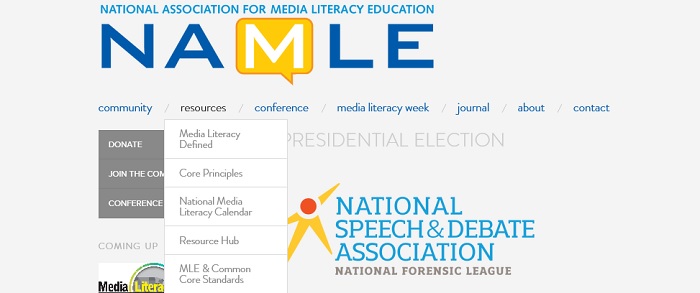Misinformation, either accidentally or intentionally, is prevalent online and it’s up to you to decipher fact from fiction. The ability to analyze, assess, evaluate, create and act on media is called media literacy. Similar to books and websites, media can be “read” for its content and educational value. Any work of media – a YouTube video, a news article, an alternative health website – can be viewed critically, using a set of criteria that can help you decide whether or not to trust it.
For example, let’s say you’re researching why leaves change color in the fall. You stumble across an article on a naturopathic site which claims that leaves change as a result of pollution. The article has an author’s name, but when you look up the author in LinkedIn, you find that he holds a bachelor’s degree in communications, but attained no other education. The article does not cite its sources, and when you try to double check the claims in the article, you find nothing from an academic database such as Academic Search, ProQuest or JSTOR that might help support its conclusions. Judging from this experience, you might not want to trust this article on leaf color change. By assessing the article for authority (who wrote it), accuracy (are the claims in the article verifiable) and transparency (can you trace the sources for the information), you can tell whether or not an article is worth reading. Other criteria can include currency (how recent is the article), relevance (does it focus on what you need to know or does it veer off into other topics), impartiality (does the article show bias) and purpose (why was the article written).
The National Association for Media Literacy Education (NAMLE) provides a wealth of resources to help you navigate viewing and reading with critical skill. From lesson plans to definitions to connections with important issues like privacy and fair use standards, NAMLE offers tools to educate yourself and others on the importance of media literacy. The Center for Media Literacy (CML) is an advocacy group which focuses on the need for media literacy in society. They also provide a variety of resources to help you sift through your media.
Media literacy has become increasingly essential in navigating information. Especially with events such as Presidential campaigns, voters have been bombarded with advertisements, flyers, Internet memes, online posts and a deluge of other images and articles related to the candidates. NAMLE has an election media literacy set of resources, including news links, teaching resources and information on understanding political ads and debates.
Going beyond the current election, media literacy helps you decipher the accuracy and quality of information that you access. For every paper you write, every speech you give, every assignment you receive, you need to ensure that you’re using the best quality information – reliable, accurate and informative. But you should be aware of media literacy for your own sake as well. As an informed individual, you will make decisions throughout your life that depend on your ability to tell truth from fiction. If you need help with your media literacy skills, feel free to contact us! iueref@iue.edu.



